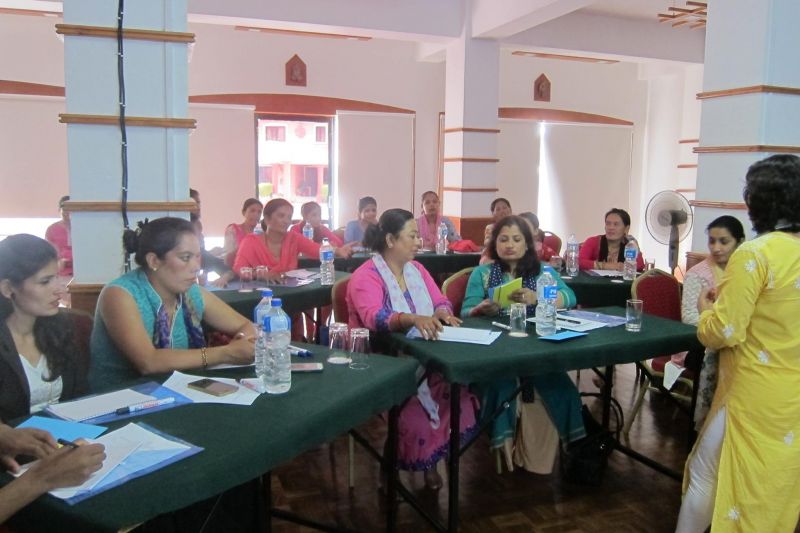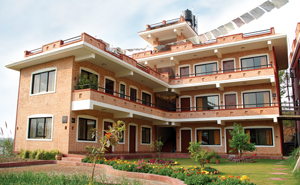
Tewa has been conducting capacity building workshop for its grantee partners for the effective implementation of its grants since its establishment time. Capacity Building Workshop was conducted at Tewa premises between 19-21 July 2017, where 18 participants from Gorkha, Ramechhap, Kavre, Dhading and Kathmandu attended.
The main objective of the workshop was to help them understand about Organizational Development and Sustainability, Community Philanthropy, Rights Based Approach, Feminist Leadership, Women Empowerment, Monitoring and Evaluation process, and Climate Change and Resilience.
Grantee partners appreciated the initiative and valued the workshop. Some of them shared that the workshop was their first experience for strengthen organizational development and the topics were very valuable to them.
The workshop provided a platform for grantee partners to learn about sustainability. The power of local assets, capacity and trust was highlighted in the workshop. It also helped to brainstorm topics which were very new to them and sensed the important role it played in demonstrating women leadership and achieving sustainability. After the session which was carried out by Ivy Thapa-Senior Manager, they were able to find out assets, capacity and trust from their own community and were eager to use them for long term benefits. Locally-generated sources of funding can give people choice, flexibility and control.
Similarly, a session was carried out by Yasodha Khadka who shared her experience on self-transformation. She joined Tewa as a volunteer in 2014 and she got many opportunities from the organization to learn about Women Rights and Women Empowerment. During the Rebuilding and Recovery Program developed by Tewa, she worked in Jharuwarashi as a volunteer to support the women survivors of earthquake. She also learnt about disaster preparedness and community support. The experience and the confidence she built by working with Tewa helped her build confidence and value her self-being. Earlier, her belief of support was only money but later after learning about Tewa's work, she realized that support could be more valuable than money. It would be lending your skills, knowledge or time to the people who are in need. This has helped her understand the value and knowledge of self-importance. In the recent election, she stood as woman Member from her Ward and although she did not win, she explained that her initiation only marks women of her age and community to take ownership for development.
Climate change and its adverse effect in agriculture were widely discussed where external resource person Prabin Shrestha from Prakriti Resource Centre illustrated how global warming is affecting our livelihood.
The adverse effect seen in our country and the implications in our farm land and cultivation of rice plant was also highlighted.The changed patterns of rain and plants were discussed in depth.According to their observation,many plants and flowers are blooming before their actual season. Also, the change in the rainy pattern was discussed - it rains more in short duration which affects the water observation capacity of the land very low and degrades the land fertility.
One of the most dangerous affects that can trigger, is the breakdown of water lakes which are located in Nepal.It was discussed that due to the depletion of ozone layer by human activity and the main responsible substances include chlorofluorocarbons (CFCs), carbon tetrachloride, hydro chlorofluorocarbons (HCFCs) and methyl chloroform.
The concept of resilient agriculture was introduced to the participants to mitigate adaptation to climate change.Resilience is a smart approach to agriculture sector which needs to be further investigated. Some of the proposed ways to build resilience were risk reduction by land use planning, risk sharing by involving community savings and insurance, preparation by forecasts and early warning systems and respond and recovery which can be achieved by livelihood transition and shelter provision.
The relationship between women and the environment was also clarified to participants. Any changes in the environment could affect women on day to day life. The most affected people due to any circumstances are women. Women handle all day works where she gets closer with forest and nature. Any changes in the climate not only affect her day to day life but also her livelihood. The workshop was conducted for women - thus, women needs to be aware about their equal participation in decision making roles to amplify their voice.


